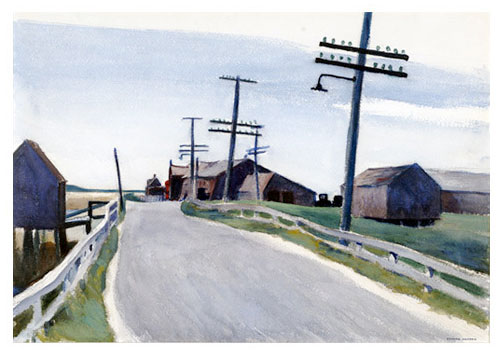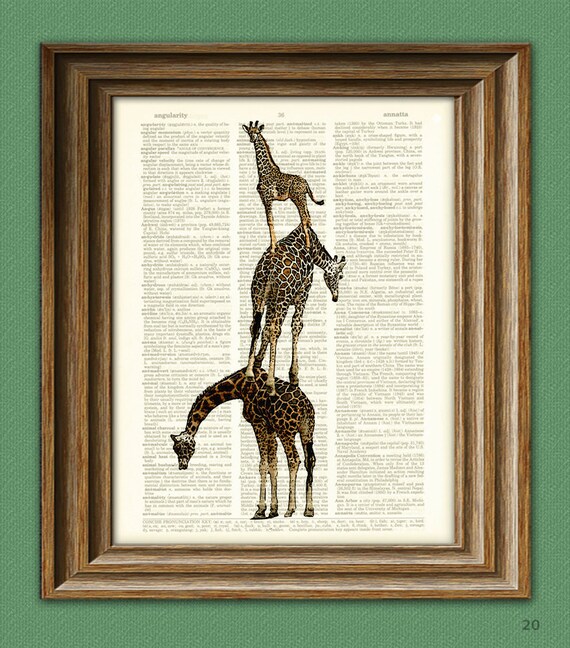"I darkened my eyes
with the dust of sadness
until each of them was a sea full of pearls."
-Rumi-
How many of my days are lived for tomorrows? What silliness! Take care of today and tomorrow shall take care of itself. Hmm. Shall I start living for today, then? I shall. Yes, I shall. Tomorrow.
Yet what of today? What of today? First, I built a tracted ziggurat on the counterpanes: a vade mecum villarette; an opuscular edifice. I had slept little and dared not commit myself to the rituals of rising lest I should, a half-hour following, have to undo the work with the rituals of rebedding. I have yet to master the chamber-maid's trick of quick trimming the bedclothes, you see, and, what with the three separate blankets, to say naught of the sheets, it takes a moiety of my morning to set my cot to rights, yet I must set it to rights, and first thing, for I cannot concentrate on anything elsewise. Thus, to avoid the labor of bed-making, I had to bring the shelves to myself, as opposed to bringing myself to the shelves (although, truth be told, the shelves are presently boxes, for this room hasn't any shelves, only a desk and dresser, and though I have filled every nook of those with what volumes they'll hold, and am thus framed, in my reflections, by the wisdom of ages, most of my books reside in neatly stacked cardboard). And so I built my mansion thus:
Thomas Traherne: Centuries and The Poetical Works
MacDonald: Diary of an Old Soul
Ruskin: Sesames and Lilies and Queen of the Air
Rudolf Rocker: The London Years
Gerald Manley Hopkins: The Major Works
T. S. Eliot: The Waste Land and Other Poems
Rilke: Letters to a Young Poet
Rumi: The Pocket Rumi Reader
And I read thus from Rilke:
"With nothing can one approach a work of art so little as with critical words: they always come down to more or less happy misunderstandings. Things are not all so comprehensible and expressible as one would mostly have us believe; most events are inexpressible, taking place in a realm which no word has ever entered, and more inexpressible than all else are works of art, mysterious existences, the life of which while ours passes away, endures."
And, as the lines stuck out to me, and seemed the sort of thing I might have need of on some future occasion, I copied them into my commonplace book, in the same glacial, careful hand that I copy everything into my commonplace book, using always the exact same pen, and the exact same precision.
It occurs to me now that perhaps the reason I accomplish so very little of what I ever set out to accomplish is precisely because the simplest tasks (from transcription to bed-making) take me quite inordinate amounts of time. Who can say how much more I'd get done if I could only be content to have the bedspread a tad more uneven on right and left; or if I would just be a little more lenient about legibility? Ah, but then I would not be as I am, and it is not so bad to be as I am. The perfectionisms (and they are not nearly so extreme as all that) are as Rumi's dust in the eyes: they are the necessary grit for such pearls as I may render.
Having copied those lines, I came across these:
"I do only want to advise you to keep growing quietly and seriously throughout your whole development; you cannot disturb it more rudely than by looking outward and expecting from outside replies to questions that only your inmost feeling in your hushed hour can perhaps answer."
These also went down in the commonplace book, but these lines sparked a revelation about my solipsistic-propensities that seemed in immediate need of utteration, and so I wrote thus underneath it:
"I have shied away from the doctrine of self-reliance as a danger, for I have perceived my connection to my fellow man to be too fragile as it is to risk the complete breaking of that connection that purposeful independence of thought might entail. And I have feared isolation above all; I am haunted by the ever-present, peripheral specter of solipsism, and am terrified of it encroaching. And the solipsism has rendered the doctrine of self-reliance dark, for solipsism is the most damagingly reductive philosophy there is: solipsism says "nothing but" until there is nothing but nothing at all. The trees, so solid at my window, are divested of their solidity and reduced to waves of energy, and these are in turn reduced to sense impressions, and these are reduced to mental impressions, and these can no longer be called "mental impressions" for there is nothing non-mental to render the distinction "mental" as meaningful. Solipsism mutes everything; it denies all objectivity and in so doing prevents all wonder, for it denies even emotions a fixed reality, a substantiality.
The doctrine of self-reliance seems only fit for those who inhabit their bones already. The solipsist is two steps behind and must learn to believe in reality before letting his "inmost feeling" be his compass. One must have faith there is something solidly and assuredly "other" than one's inmost feeling to realize the value of the inmost feeling, which gains its own solidity and assuredness from the solidity and assuredness of the world beyond it. Or so I have thought.
But I am not a solipsist. I must never forget that. For the same lack of faith that plants solipsism on my perpetual periphery is the lack of faith that must prevent me from actual, absolute solipsism. The same skepticism that leads me to doubt the reality of the trees must lead me to doubt also the non-reality of the trees. I always forget this when I despair. In despair I lose sight of the half of my skepticism that allows it to be considered skepticism in the first place. I become an irrational half-skeptic and thereby no skeptic at all, for I fail to be skeptical of my skepticism. The saturant skeptic, the skeptic whose skepticism is absolute and ideal, admitting no flaws, knowing no deviations, is perhaps more appropriately called a possibilist. This is what I am at my rational best. Socrates says that all he knows is that he knows nothing; the possibilist says: "I do not know if I do not know." This statement is perfect as the possibilist's motto, for it is at once a contradiction and a tautology. The possibilist, the ideal possibilist, denies and affirms everything and nothing, and is endlessly curious, and endlessly humble."
All this I wrote in my painstakingly precise penmanship. And it was not at all the revelation I had meant to write, but it seemed well enough. We sand the oysters aiming for spheres, but sometimes we get drops, and sometimes baroques, and they're all of them pearls at day's end.
Yet it had taken so much time to hand-write all of this, and had thus progressed so far along in the morning, that it seemed I should get up after all. And, having done so, and having disassembled the ziggurat and reassembled in a neat spire on the dresser, and having gone through the ritual of making my bed, it occurred to me that, much as I was now free to read as I pleased (my semester's work being at an end), I was likewise free to walk as I pleased, and, though the forecasted high was no more than 20F, the skies were azure and open, and I determined to take to the park. Yet, before that, being in a rather merry and inspired frame of mind, and wishing, as one does in such states, to share my merriment with another, I elected on one of my classmates, S______, as the candidate for this sharing. I had never written to S______ before, yet I had spoken to her on frequent occasions before and after classes, and I had been meaning to send her a note of encouragement, as I knew she had been having a very rough go of it the last week of the semester. Yet, having never written to her before, and knowing that my email would come rather out of the blue, I didn't know quite what to say in it, so I quoted the aforementioned Rilke lines on criticism, and mentioned the book-building, and expressed my very positive opinion of her. And then I sent the email off. And I did not dwell upon my letter to S_____, as I would have been wont to do in bygone years. I would have sent the letter in the past, just as I sent it today, but in the past I would have spent hours thereafter turning-over in my head every potential misinterpretation, fretting over every instance of polysemy and cursing myself for not phrasing this-or-that more definitely. I did none of that today, and this means I am coming to trust people; I am coming to trust in people's goodness and their willingness to see the best in others; and this makes me happy. This means I am improving. It is a gradual process, but I am improving; I am, at long and arduous last, showing some signs of becoming a better person.
And, after the letter, I did indeed take to the park, the serenely solitary and frostbitten park. And though I did intermittently lament the thinness of my socks, and the cheapness of my gloves, and the non-existence of my hat, it was immensely pleasant to walk around the frozen lake, with no obligations awaiting me on any side, and only myself to please in all directions. And, as the cold had left the paths to myself, I was free to skip and dance and heartily recite my handful of memorized verses, and read from my pocket Rumi. And I was free, too, as much as the cold would allow me, to stand very still, and listen to the hushed winter-noises of squirrel-feet in rime-brittle leaves, and chickadees dee-dee-ing, and the hoar wind through bald branches. And, if I ever drooped for a moment, and grew however fleetingly dull to the stripped shrubs and the pocked-and-sandy earth, I tried to remember the morning lesson on ideal possibilists, and this helped somewhat, although it wasn't half so efficacious as the unexpected sight of juncos cavorting in a tangled alcove, or squirrels families darting in and out of hollow trees.
And in the evening, I went to the bookstore, and bought a second hand copy of Kuhn's The Structure of Scientific Revolutions for $6, and Daniel Barenboim's Music Quickens Time for $2, and I sat in the cafe reading the latter. And I read thus:
"After careful observation, we notice that the relationship between sound and silence is the equivalent of the relationship between a physical object and the force of gravity. An object that is lifted from the ground demands a certain amount of energy to keep it at the height to which it has been raised. Unless one provides additional energy, the object will fall to the ground, obeying the laws of gravity. In much the same way, unless sound is sustained, it is driven to silence."
And I copied this with my scrupulous scrivenery in my commonplace book, and wrote underneath it:
"Silence is the underlying "sound" of the universe. Silence. I think of Lanier's marshes. Silence. I think of Stoddart's defense of death and monuments. Silence. Sound all around me. Cafe music and machine hums and murmurs and laughter. And one would say of this place, were one asked, that it is quiet, for one could hold a conversation in whispers and not miss a syllable. Yet it is so far from Silence. I am glad Silence is the base-note. I am glad it is the "sound" to which all things return. I have never "heard" it, yet still I am glad of it. Silence."
And now, I must to silence, or my best approximation of it. I must to those rituals of rebedding. For it is tomorrow already; tomorrow has encroached on today. And I must take care of today, and the care of today, for the present, is sleep.
Goodnight good world.
"I [darken] my eyes
with the dust of sadness
until each of them [is] a sea full of pearls."




















